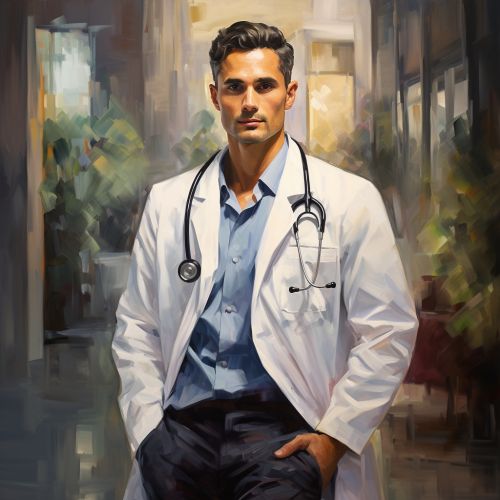Cardiologist
Overview
A Cardiologist is a medical professional who specializes in diagnosing, treating, and preventing diseases and conditions of the cardiovascular system. The cardiovascular system includes the heart and blood vessels. Cardiologists undergo extensive training and education to acquire the necessary knowledge and skills to provide comprehensive cardiovascular care.
Education and Training
Becoming a cardiologist requires a significant amount of education and training. After obtaining a bachelor's degree, prospective cardiologists must attend medical school, which typically takes four years. Following medical school, they must complete a three-year residency in internal medicine, during which they gain hands-on experience in diagnosing and treating a broad range of medical conditions.
After completing their residency, prospective cardiologists must undergo further specialized training in a cardiovascular disease fellowship, which typically lasts three years. This fellowship provides intensive training in diagnosing and treating cardiovascular diseases and conditions. Some cardiologists may choose to further specialize in areas such as interventional cardiology, electrophysiology, or heart failure and transplant cardiology, which require additional fellowship training.


Roles and Responsibilities
Cardiologists have a wide range of roles and responsibilities. They diagnose and treat conditions and diseases of the heart and blood vessels, such as coronary artery disease, heart failure, valvular heart disease, and arrhythmias. They may use a variety of diagnostic tests, including electrocardiograms (ECGs), echocardiograms, and stress tests, to diagnose these conditions.
In addition to diagnosing and treating cardiovascular conditions, cardiologists also play a crucial role in preventing cardiovascular disease. They may counsel patients on lifestyle modifications, such as diet and exercise, to reduce the risk of cardiovascular disease. They may also prescribe medications to manage high blood pressure, high cholesterol, and other risk factors for cardiovascular disease.
Specializations
There are several sub-specialties within cardiology, each focusing on a different aspect of cardiovascular care. These include:
- Interventional Cardiology: Interventional cardiologists specialize in using catheter-based procedures to treat cardiovascular diseases. They may perform procedures such as angioplasty and stent placement to treat coronary artery disease.
- Electrophysiology: Electrophysiologists specialize in diagnosing and treating heart rhythm disorders, or arrhythmias. They may use procedures such as catheter ablation and pacemaker implantation to treat these conditions.
- Heart Failure and Transplant Cardiology: These cardiologists specialize in treating advanced heart failure and managing heart transplant patients.
Research and Advancements
Cardiologists are often involved in research to advance the understanding and treatment of cardiovascular diseases. They may conduct clinical trials to test new treatments or procedures, or they may conduct basic science research to understand the underlying causes of cardiovascular diseases. The field of cardiology is continually evolving, with new advancements in diagnostic techniques, treatments, and preventive strategies being made regularly.
